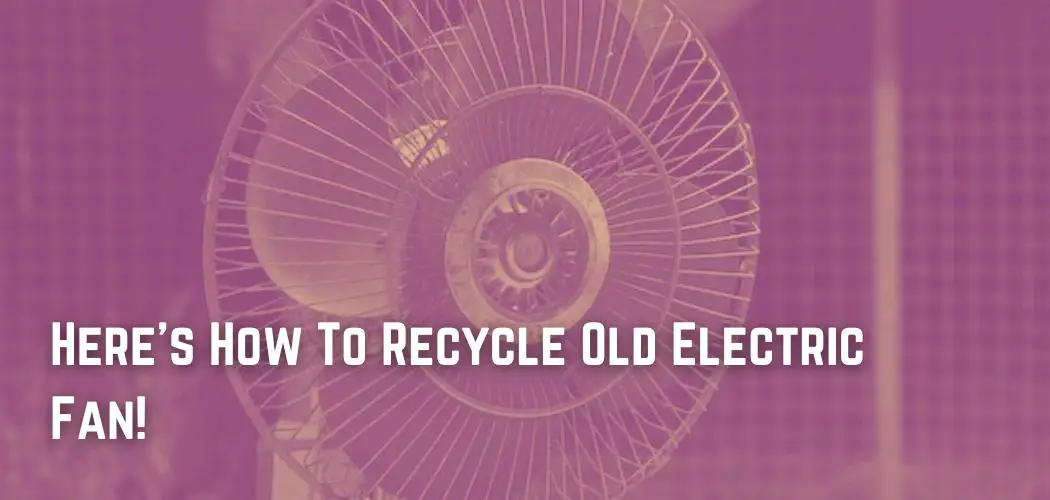Recycling helps the environment in many ways, such as by reducing the amount of trash that ends up in landfills, improving our natural resources, and stopping pollution.
When materials are recycled, there is no need to squander energy and resources to create a new product.
Electronics can take up to a thousand years to break down, which has a long-lasting effect on the ecosystem.
Electronic garbage that is burned at landfills can potentially contribute to air pollution. At Hunter, we aspire to be environmentally conscious as well.
What should you do with your old electric fan once you’ve decided on a new ceiling fan design for your room?
A second home might be found for an old and unwanted fan that is still in usable shape.
You might donate the item to a local thrift store. Or perhaps you have a local charity that assists families in need.
Some families may not be able to purchase even a modest fan during the summer months.
Therefore, donating your unwanted fan would be very appreciated.
Advertising on websites like Facebook and Gumtree is also an excellent choice. You may make it available as a free item for someone to gather.
Or, if the item is still in good shape, sell it for a small profit.
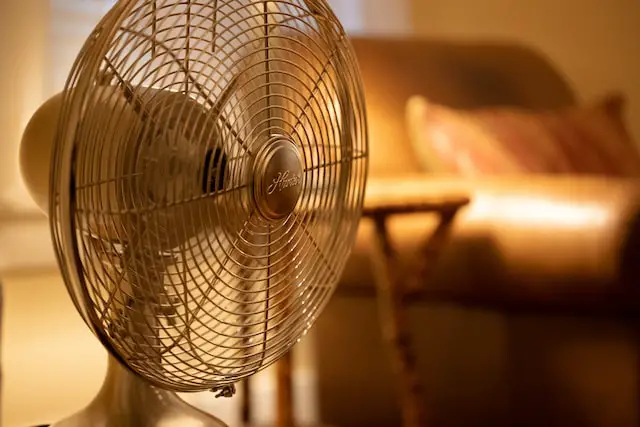
The store where you want to buy a new fan may have a program or service for taking old fans back. Check with the shop, as there may be a fee for this service.
The simplest method for recycling a fan is to bring it to a local recycling facility. At the recycling center, they will ensure the recycling of aluminum, plastic, and steel.
If you live near a college or university, they may also have recycling programs for appliances. Recycling centers are equipped to disassemble and recycle your fan in the appropriate manner.
Before you put a fan in a recycling bin, your recycling center will also tell you if it has any dangerous parts that you need to take out first.
Some centers will accept an entire fan with all of its components.
Other places have strict rules (often made by the city) about what they can and can’t take.
Why Is Recycling Important?
Recycling offers numerous advantages. It is often recommended because it is one of the best ways to cut down on trash in our environment, including in landfills. Additionally, recycling can conserve our natural resources.
The air, the seas, and even creatures are examples of Earth’s natural resources that can be preserved. By recycling electronics and appliances, you also get rid of harmful chemicals in the environment and make less of a mess of the planet’s natural resources.
The Environmental Protection Agency (EPA) loves to use the phrase “Reduce, Reuse, and Recycle.”
The recycled materials are turned into new materials. Not only does it save time for companies that make things and want to reuse parts, but it also helps protect the environment by preventing them from making more materials.
Our society reuses and recycles materials. This is a cycle that keeps the environment healthy for people and all other kinds of life.
Are Electric Fans Recyclable?
Local recycling regulations will dictate which components of your fan are recyclable. Some places will take the whole fan, including the blades, blade irons, and batteries for the remote.
Others have strict recycling requirements and only accept a limited number of pieces. Bring your old electric fan to a recycling center near you to find out if it can be recycled.
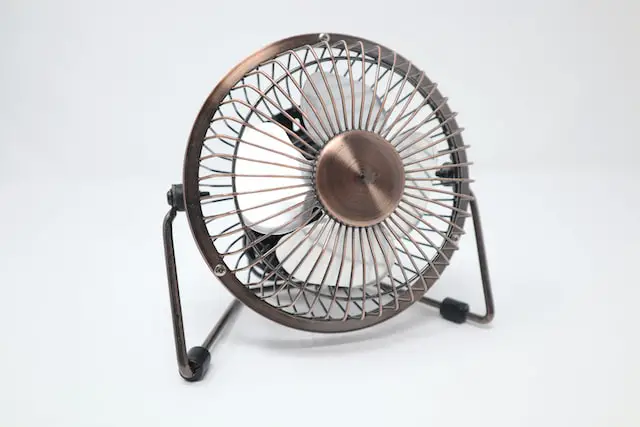
Ensure careful disposal of light bulbs as well. It is too hard to get the filaments out of incandescent light bulbs so that the glass can be recycled. Incandescent light bulbs can be discarded in the usual trash.
The EPA suggests that you check with your local recycling center to find out how to recycle CFLs and fluorescents, which have mercury in them.
Locations Where Your Fans Can Be Recycled
The following are some locations where you can get your electric fan recycled free of cost.
Recycle America
Okay, so this is not a business where fans can be recycled, but this website will provide a list of businesses where fans may be recycled. Enter your zip code and the keyword “fan” on the website, and a list of potential locations will appear.
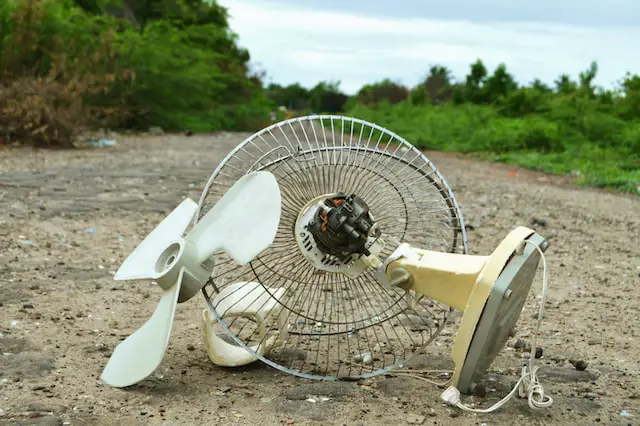
This website is comparable to Electronics Recycling and Greener Gadgets. Electronics Recycling provides additional information on state-specific e-waste recycling regulations.
Office Depot (OfficeMax)
These two companies just merged. At the moment, you can choose to recycle ink and toner cartridges, batteries, light bulbs, and technology. Nothing was paid for. Call your local Office Depot prior to your visit, as some of their policies have changed.
Best Buy
It is free to recycle fans here. Simply bring it to your local store, enter the store, and locate the kiosk. If it is your first time, you may want to ask a colleague where it is located.
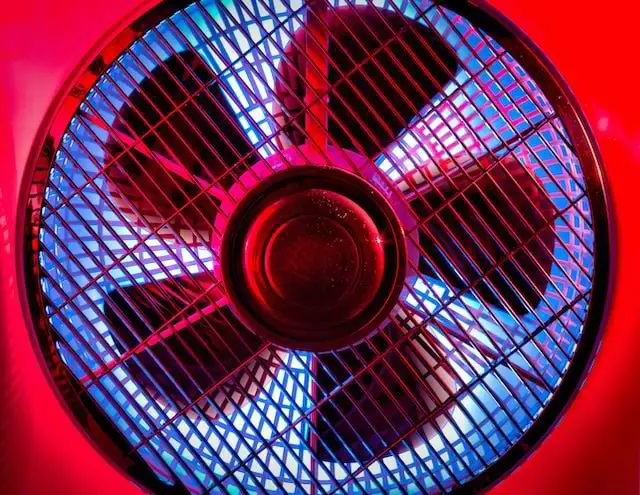
Additionally, you can recycle additional devices and appliances. Check their website, as some may charge a fee to remove items from your residence.
Help By Donating Old Fans
Reduce, reuse, and recycle is an age-old saying. Consider donating your ceiling fan if your town does not offer ceiling fan recycling and the fan is in good working condition.
Organizations such as the Salvation Army and Habitat for Humanity might help you find a new home for your old fan.
Find a donation facility in your area and phone them to confirm if they will accept your ceiling fan. Typically, you can drive up to a donation location, or sometimes they will arrange for a home pickup
Conclusion
Electric Fans are recyclable, and there are a variety of disposal methods available for broken or unneeded fans. No matter where you live, there are places to dispose of them safely.
Businesses such as Best Buy and Office Depot accept these items for safe recycling. Recycling materials can aid the environment in a variety of ways, such as by lowering pollution and removing harmful sources.
However, there are alternative choices for disposing of fans, such as donating, selling, or reusing them. Even these possibilities can be beneficial in several ways, including through community service, financial gain, and personal enjoyment.
